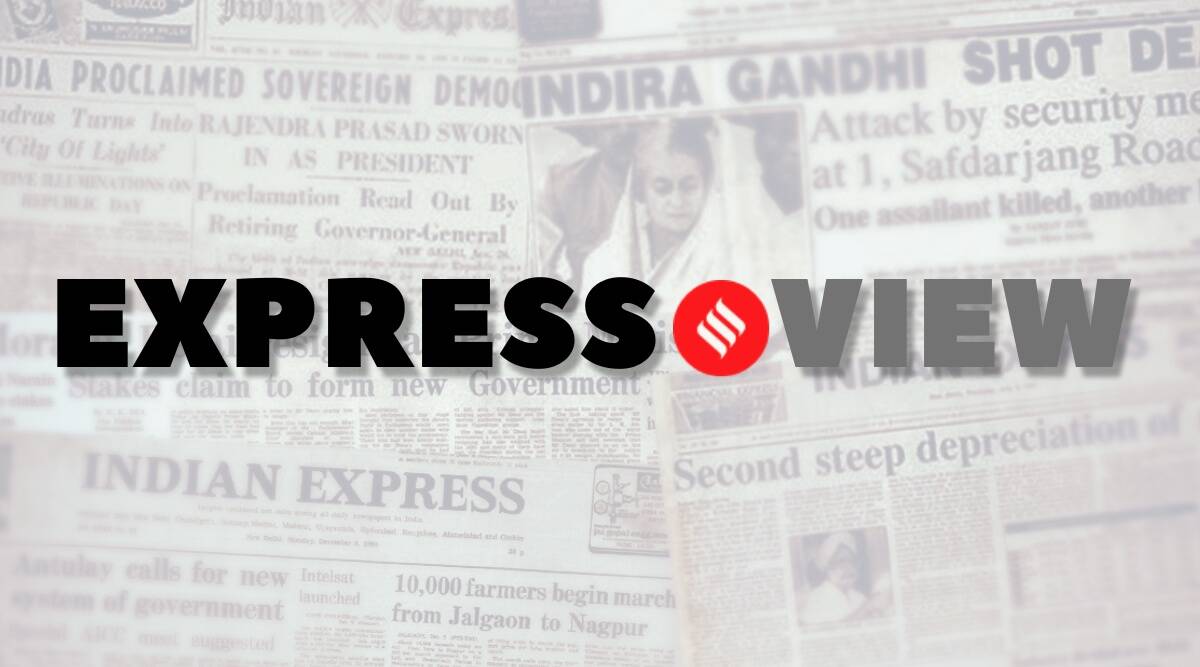 Last month, the Supreme Court upheld the constitutionality of the Prevention of Money Laundering Act, 2002, a law that upends the first principles in criminal law, including the presumption of innocence of the accused.
Last month, the Supreme Court upheld the constitutionality of the Prevention of Money Laundering Act, 2002, a law that upends the first principles in criminal law, including the presumption of innocence of the accused.The Delhi government’s new excise policy was controversial almost since it was brought in last year in November with the stated aim of tackling corruption. It soon became mired in accusations of rules and procedures being violated, and of cartelisation and kickbacks; Lieutenant Governor Vinai Kumar Saxena recommended a CBI probe; and nine months after its announcement, the Arvind Kejriwal government rolled back the policy in July. And yet, the CBI raid at the residence of Deputy Chief Minister of Delhi Manish Sisodia also comes in a climate that sparks this question: Is the action of the Central agency about policy or politics, or both? The innocence, or lack of it, of Sisodia and others accused of complicity in the alleged irregularities, will only be known after the law takes its course. For now, however, the CBI landing at Sisodia’s doorstep on Friday morning also draws attention, and concern, to the other story the senior AAP leader has been pulled into – of central investigative agencies under the BJP-led government paying excessive and excessively focused attention to the BJP’s political rivals. Even a cursory look throws up a clear pattern that is worrying in a system in which the independence of these agencies is — or should be — a central tenet: There is a sharp jump in the number of political leaders against whom the ED has taken action in the NDA years compared to those in the tenure of the UPA, and within this, Opposition politicians have been targeted overwhelmingly disproportionately.
The cases are piling up against non-BJP politicians and all the incriminating images of stashes of cash found in addresses linked to TMC minister Partha Chatterjee, now in custody, cannot counter the growing impression of a government aggressively (mis)using all it can to settle political scores. It is not as if other governments have not made central agencies dance to a political tune – the CBI was called the Congress Bureau of Investigation and it was also in the tenure of the Congress-led UPA that the apex court famously described it as a “caged parrot”. But the gloves seem to have come off much more, the political calculation seems far more bare-knuckled now. Both the frequency with which the agencies are wielded against political opponents, and the scale of these operations, have shown a quantum leap under the BJP-led NDA. And in some cases, when the politician has switched sides, the agencies have turned forgiving overnight.
The costs of this take-no-prisoners aggression shown by the Executive armed with the quiescent Central Agency are sobering, especially given that countervailing institutions are falling short in applying the check and balance. Last month, the Supreme Court upheld the constitutionality of the Prevention of Money Laundering Act, 2002, a law that upends the first principles in criminal law, including the presumption of innocence of the accused. In doing so, it drastically lowered the bar for the state to encroach on individual rights in the name of going after corruption. That’s surely a laudable goal but the clean-up process needs to pass the smell test. These days, quite often, it doesn’t.